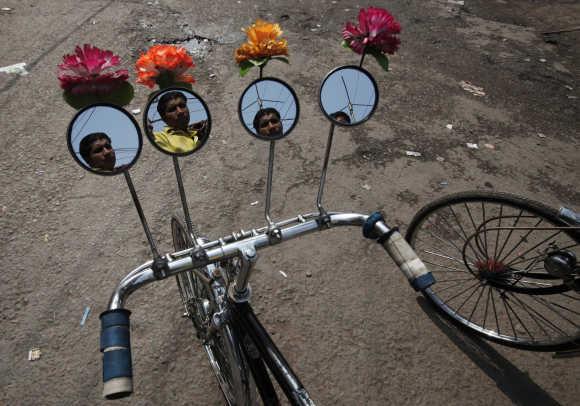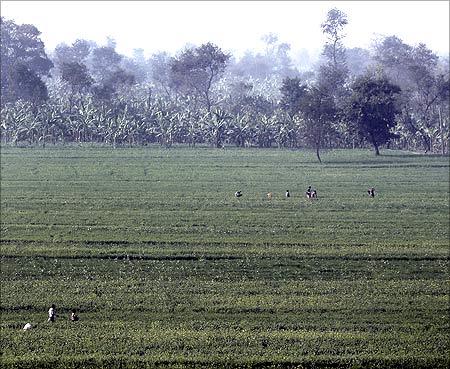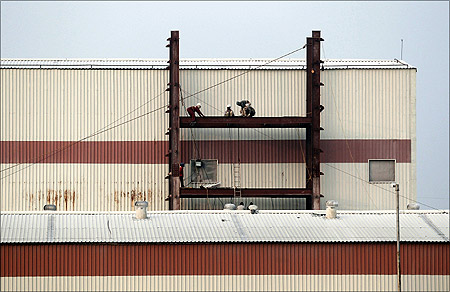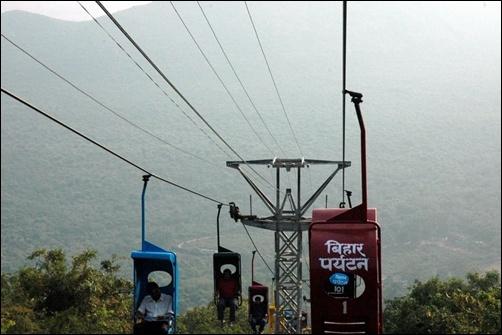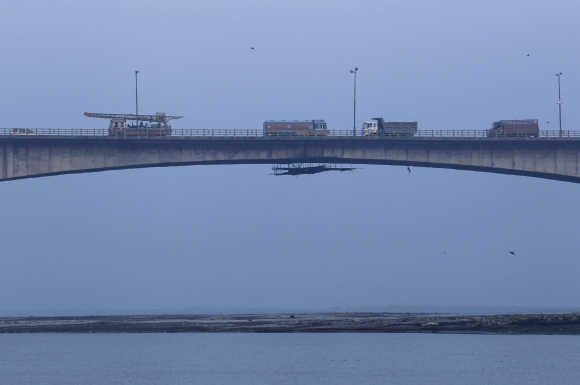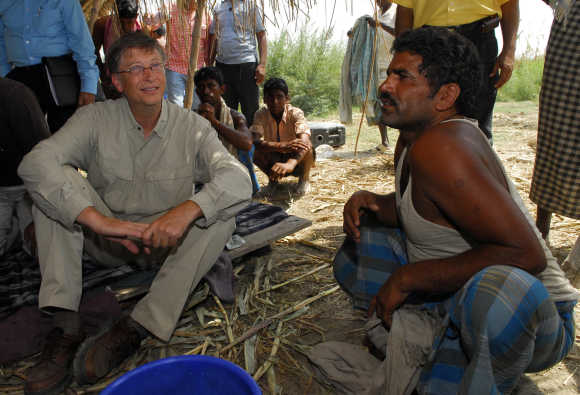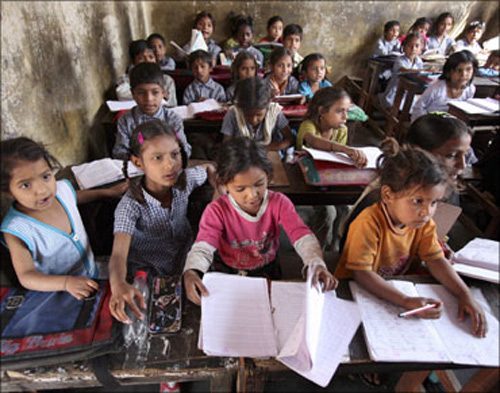 | « Back to article | Print this article |
Bihar clocks highest growth rate of 11.95%
In the face of sluggish domestic demand and global economic slowdown, Bihar has recorded a staggering growth rate of 11.95 per cent rate annually at constant prices during 11th Five Year Plan, the highest among states.
Per capita income (NSDP at current price) of Bihar is Rs 25,653 as against Rs 60,972 for All India in 2011-12, Deputy Chief Minister Sushil Kumar Modi, who also holds Finance portfolio, said after tabling the economic survey 2012-13 in the state Assembly.
"The ratio of per capita income in Bihar and India now stands at 42.1 per cent compared to 32.4 per cent in 2007-08," Modi said.
Click NEXT to read more...
Complete coverage: Union Budget 2013-14
Budget Impact Live!
Bihar clocks highest growth rate of 11.95%
Modi said the economic survey narrates the impressive trajectory Bihar's economy and the impact of development strategies of the present government in the state on the population.
Modi said that the state witnessed impressive growth in all sectors. Going into details, he said the production of cereals in 2011-12 was 17.2 million tonnes compared to 10.4 million tonnes in 2010-11.
Production of rice increased to a new high of 8.2 million tonnes in 2011-12 against 3.1 million tonnes in 2010-11.
"The quantum jump in production is due to the use of new 'Sri' technique of rice production," he said.
Click NEXT to read more...
Bihar clocks highest growth rate of 11.95%
Rubbishing the opposition criticism of the state government for "cooking up" figures to paint a rosy picture, Modi said two-third figures in the survey have been provided by the central government agencies.
Otherwise, also the assessment of economic performance of the state has been done on the parameters set by Central Statistical Organisation (CSO), which are correct and used for all the official purposes, he said.
Modi said MSME (Micro, Small and Medium Enterprises) was doing very well in Bihar.
Click NEXT to read more...
Bihar clocks highest growth rate of 11.95%
Bihar has a total of 1.92 lakh registered units under MSME involving a total investment of Rs 1941 crore and employing 6.30 lakh persons in 2012, he said.
The Bihar Finance Minister said banks have disbursed 93 per cent loans to MSME units in the financial year 2012-13 so far compared to 100 per cent in the last fiscal.
Among other highlights, Modi said the arrivals of foreign tourists into Bihar has increased manifold over the years.
"One out of every six foreigners in India comes to Bihar to visit historic sites. The number of foreign tourists recorded more than four fold increase in 2011 (7.95 lakh) over 2007 (1.77 lakh)," he added.
Click NEXT to read more...
Bihar clocks highest growth rate of 11.95%
The total road length in Bihar works out to 1.40 lakh km of which length of rural roads is 1.23 lakh km, he said adding under 'Mukhyamantri Setu Nirman Yojna', a total number of 3140 bridges have been completed till date.
Modi said by the end of 2011-12, Bihar had around 46 million telephone connections of which mobile phones had a share of over 98 per cent, with private operators playing a big role.
Click NEXT to read more...
Bihar clocks highest growth rate of 11.95%
In the health sector, total fertility rate (TFR) in Bihar decreased from 4.2 children in 2006 (highest in the country) to 3.7 children in 2010, showing a drop of 0.5 per children, he said.
The average number of patients visiting government hospitals per month has increased to 9,317 in 2011 from 3,077 in 2007. The bed occupancy rates have also risen from 226 per cent in 2009-10 to 77.1 per cent in 2011-12, he added.
Click NEXT to read more...
Bihar clocks highest growth rate of 11.95%
In the field of education, the dropout rates at primary level decreased to 39.3 per cent in 2010-11 from 46.1 per cent in 2006-07.
At the upper primary stage, it decreased to 55.1 per cent in 2010-11 from 61.8 per cent in 2006-07, he said adding the SC and ST dropout rates also decreased steadily.
Click NEXT to read more...
Bihar clocks highest growth rate of 11.95%
The state government had an outstanding debt of Rs 4,475 crore in 2007-08 equalling 39 per cent of its GSDP. By 2011-12, the debt-GSDP metric had declined substantially to 24 per cent, the Bihar Finance minister said.
He said there has been some regional disparities among districts of the state in terms of development.
While Patna, Saran and Nalanda are relatively prosperous, Khagaria, Sheohar and Lakhisarai are relatively backward, he said quoting from Economic survey.
